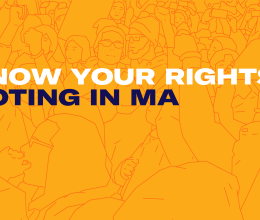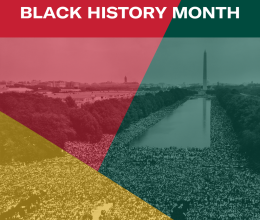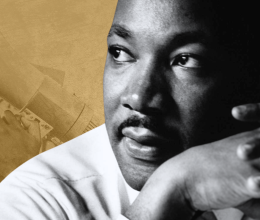
The ACLU of Massachusetts today urged the Massachusetts Supreme Court (SJC) to declare Massachusetts' 20-day voter registration cutoff law unconstitutional.
Arguing before the SJC, the ACLU asked the Court to affirm the Suffolk Superior Court's decision that the arbitrary voter registration cutoff law violated the Massachusetts Constitution.
"Voting rights are fundamental to a robust and working democracy," said Carol Rose, executive director of the ACLU of Massachusetts. "The Massachusetts Constitution expressly protects an individual's right for that very reason - and that's why we're urging the Court to affirm the Superior Court's judgment. Following the 2016 election, the fight for voting rights remains critical as ever, and Massachusetts should lead nationwide efforts to protect and expand access to the ballot."
The ACLU of Massachusetts, the national ACLU's Voting Rights Project, and Ropes & Gray LLP filed this lawsuit 16 months ago on behalf of two voting rights organizations - Chelsea Collaborative and MassVote - and individual registered voters. Initially filed in Suffolk Superior Court in November 2016, Chelsea Collaborative v. Galvin challenges Massachusetts' 20-day voter registration cutoff law, which routinely prohibits thousands of qualified voters from casting ballots. In July 2017, the Suffolk Superior Court agreed that the voter registration cutoff law is unconstitutional and disenfranchises thousands of potential voters throughout the Commonwealth. Secretary of the Commonwealth William Galvin appealed the decision.
“The voter registration cutoff has barred thousands of would-be voters from casting ballots over the past three presidential elections,” said Kirsten Mayer, partner, Ropes & Gray and ACLU co-counsel. “The state has since demonstrated—by virtue of its own actions—that its 20-day cutoff is arbitrary, especially since it allows voters to cast ballots in early voting, just days after registering.”
The plaintiffs' argument was supported by several amicus briefs from both local and national organizations, including Common Cause, Conservation Law Foundation, Demos, Environmental League of Massachusetts, League of Women Voters of Massachusetts, NARAL Pro-Choice Massachusetts, New England Area Conference of the NAACP, Planned Parenthood, Rock the Vote, and SEIU. These briefs emphasized the far-reaching impact of the voter registration cutoff and described potential alternatives the legislature could adopt if the Court strikes down the current deadline. Professor Alexander Street, an Associate Professor of Political Science at Carroll College, also submitted an amicus brief, arguing that the voter registration cutoff prevents tens of thousands more people from registering to vote in Massachusetts.
Learn more about the case, Chelsea Collaborative v. Galvin.





